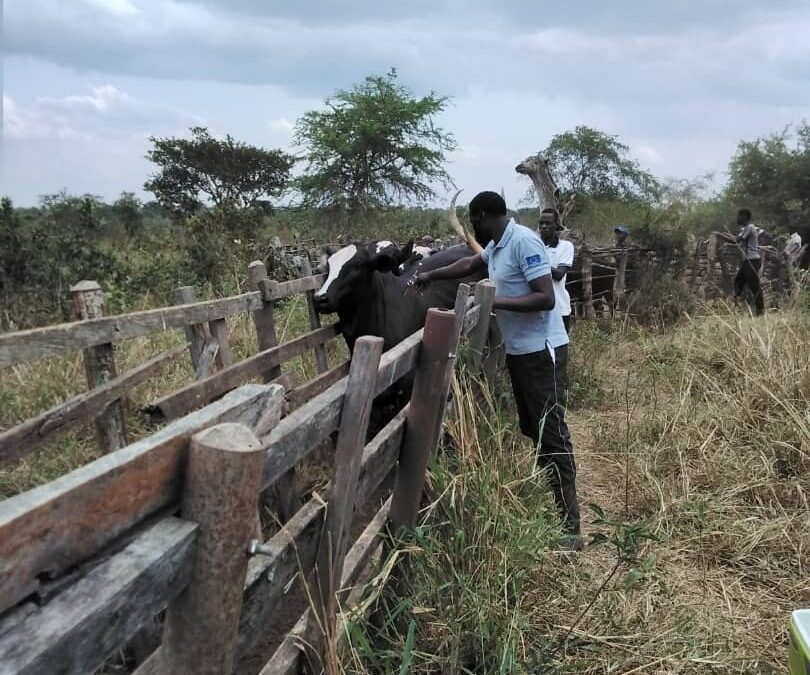Herd health monitoring is an important practice on a livestock farm because it aids in the detection and identification of diseased animals. This in turn ensures that diseased animals are treated in time before the issue gets worse.
Ensuring a healthy herd involves a number of elements:
- Foundation
Having or engaging the services of a qualified veterinary practitioner who can take some measurements and/or tests to determine the starting point. This involves taking some targeted samples (blood or fecal), whose results help a farmer decide on the way forward concerning vaccinations and other interventions
- Disease prevention
Animals are prone to catching diseases due to factors like the entry of new livestock into the herd. When introducing new animals into a herd, it is important to conduct a wellness check on them to make sure they do not carry any diseases.
- Controlling disease
A qualified veterinary practitioner is key in ensuring there is regular health monitoring on the farm. The personnel will ensure that crucial vaccinations are carried out within the stipulated times and advise the farmer accordingly on what preventive measures to undertake.
- Close monitoring
It is important to thoroughly monitor the animals for any kind of disease. Monitoring is a daily routine practice especially in terms of production. The close proximity of the animals makes them susceptible to contracting diseases easily, should one of them be sick. It is advisable to contact a qualified veterinarian in case anything is suspected, in order to have a healthy herd.
With support from the European Union (EU)  Uganda Meat Producers Cooperative Union Ltd (UMPCU) regularly conducts herd health monitoring for her member farmers. This enables both the veterinary personnel and the farmer to be knowledgeable about the health of their cattle. Herd health monitoring by a qualified veterinary practitioner is recommended regularly e.g. once a month.
Uganda Meat Producers Cooperative Union Ltd (UMPCU) regularly conducts herd health monitoring for her member farmers. This enables both the veterinary personnel and the farmer to be knowledgeable about the health of their cattle. Herd health monitoring by a qualified veterinary practitioner is recommended regularly e.g. once a month.

